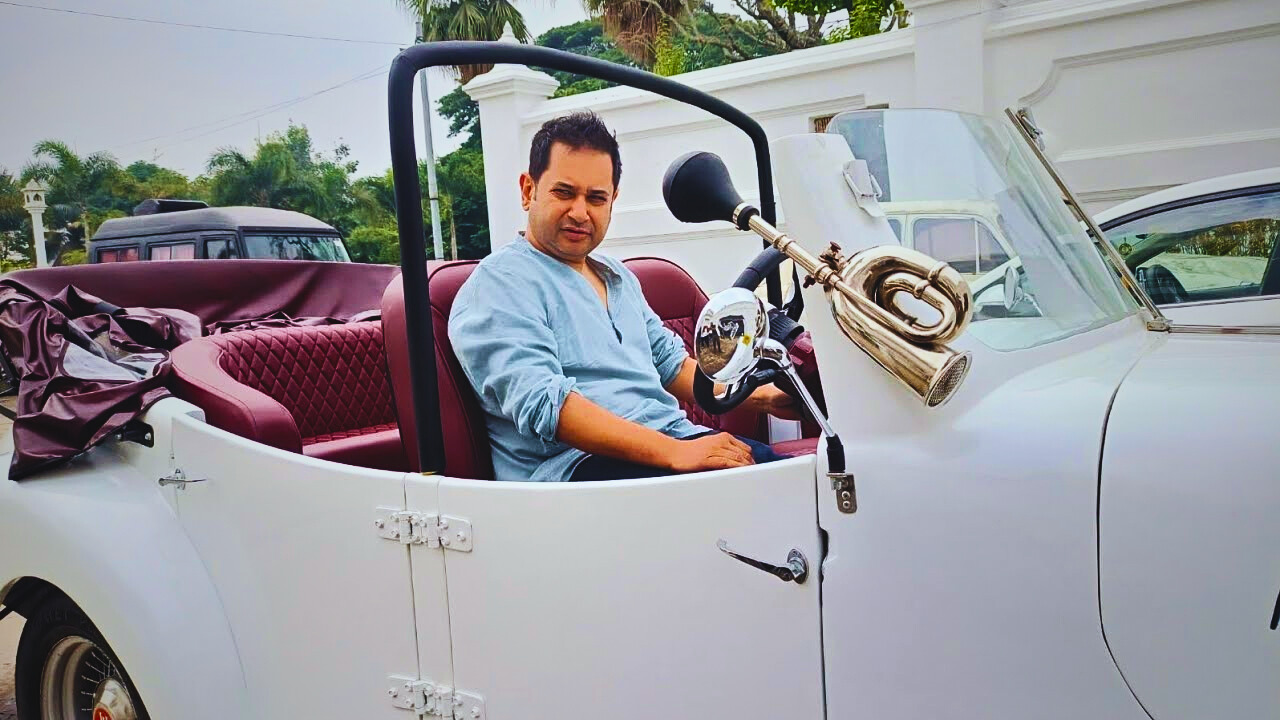Biography
Name: Pradyot Bikram Manikya Debbarma
Popularly Known As: Maharaj Pradyot Kishore Debbarma
Birth Date: July 4, 1978
Birth Place: Agartala, Tripura, India
Pradyot Kishore Debbarma, popularly known as ‘Bubagra’ by the indigenous people of Tripura, is the current head of the erstwhile Manikya royal family of Tripura. He comes from a lineage that once ruled the princely state of Tripura until its accession to India in 1949. Born in Agartala, he grew up immersed in Tripura’s rich culture and history, becoming a prominent figure in regional politics and an advocate for indigenous rights.
Pradyot completed his education at The Doon School, one of India’s most prestigious institutions. He is known for his scholarly and philanthropic endeavors. Following his education, he became involved in both journalism and politics, leveraging his heritage to speak for the rights of the indigenous people of Tripura.
Political Career and Founding of Tipra Motha Party
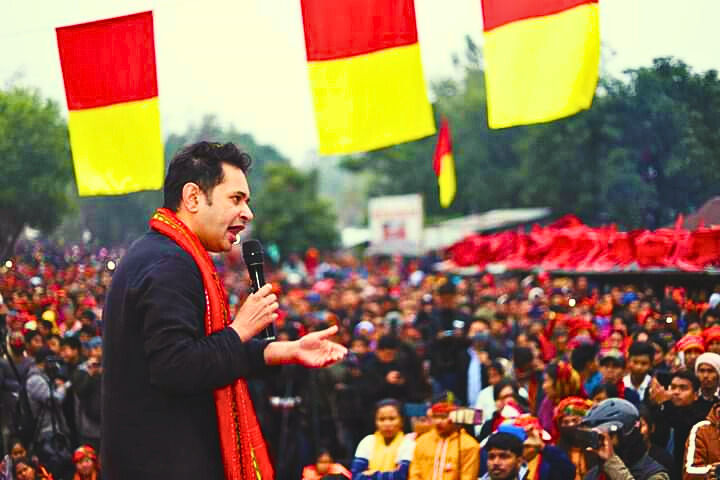
In 2019, Pradyot founded the Tipra Motha Party (TMP), a regional political movement dedicated to advocating for the rights and autonomy of Tripura’s indigenous communities. Before establishing TMP, he was associated with the Indian National Congress, where he held the position of Tripura Pradesh Congress Committee President. However, due to differences with the central leadership regarding their stance on indigenous issues, Pradyot resigned from the party and chose to chart his own path.
Tipra Motha’s main agenda revolves around the creation of a separate state, Greater Tipraland, to ensure social, cultural, and economic justice for the indigenous Tiprasa people. Pradyot has been vocal about the marginalization of tribal populations and has led peaceful protests and engaged in political discourse to address their grievances.
Under his leadership, Tipra Motha Party gained significant traction, winning the Tripura Tribal Areas Autonomous District Council (TTAADC) elections in 2021, a key political milestone showcasing the indigenous people’s support for Pradyot’s vision.
Lifestyle
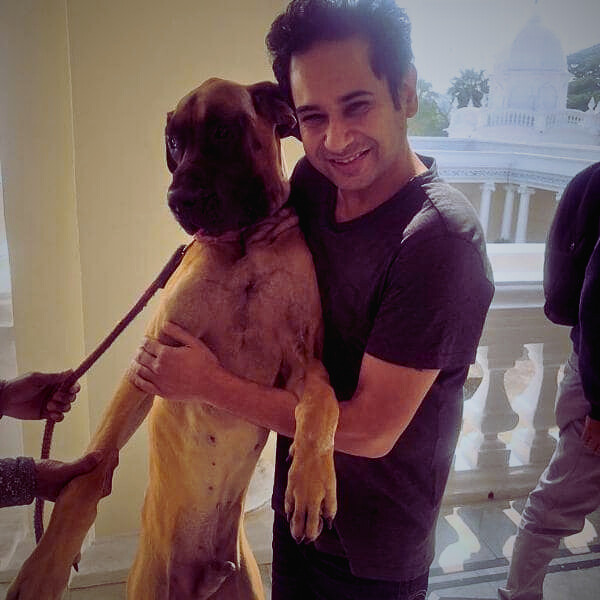
Pradyot Kishore Debbarma lives a lifestyle that blends modernity with traditional values. Despite being a royal, he is known for his down-to-earth personality and simple approach to life. He is often seen wearing traditional attire, especially during cultural events, as a sign of respect for his heritage.
He is also known for his love of music and biking. Pradyot is an avid traveler and has a keen interest in exploring different cultures. His active presence on social media provides insights into his lifestyle—showcasing his political work, community outreach, and personal hobbies.
Pradyot is a staunch advocate of tribal unity and harmony, and his lifestyle reflects his commitment to being close to the people. He frequently visits different tribal regions in Tripura, interacting with locals, listening to their concerns, and participating in cultural activities.
Influence and Advocacy
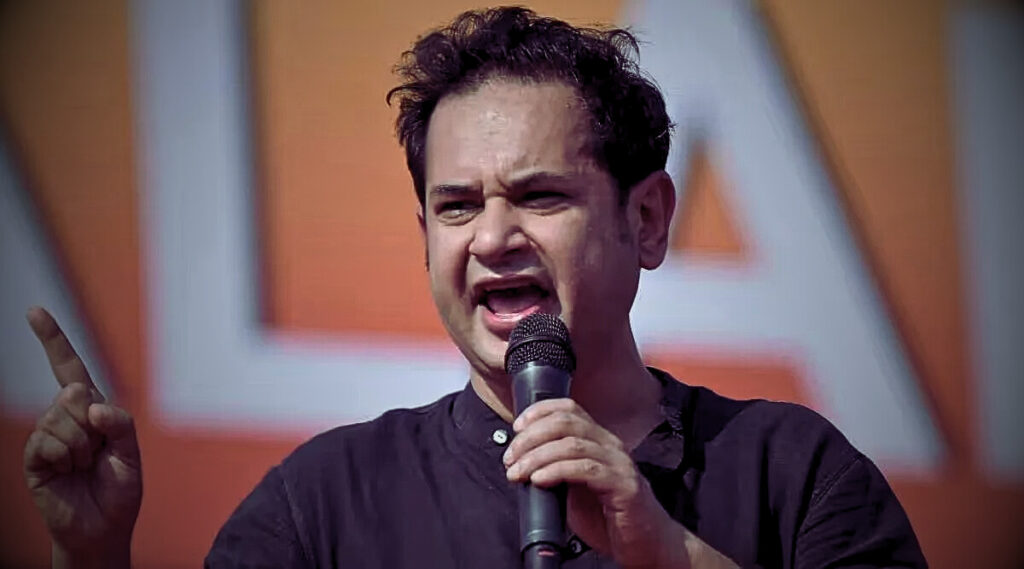
Pradyot Kishore Debbarma’s influence goes beyond politics; he has become a symbol of hope and pride for many indigenous people in Tripura. He has been vocal about issues such as citizenship rights, land ownership, and the protection of the unique cultural identity of the indigenous communities.
Tipra Citizens Forum, a non-political organization founded by Pradyot, aims to support the welfare of marginalized communities. Through this forum, he has worked on several initiatives related to education, healthcare, and disaster relief.
Net Worth and Financial Standing
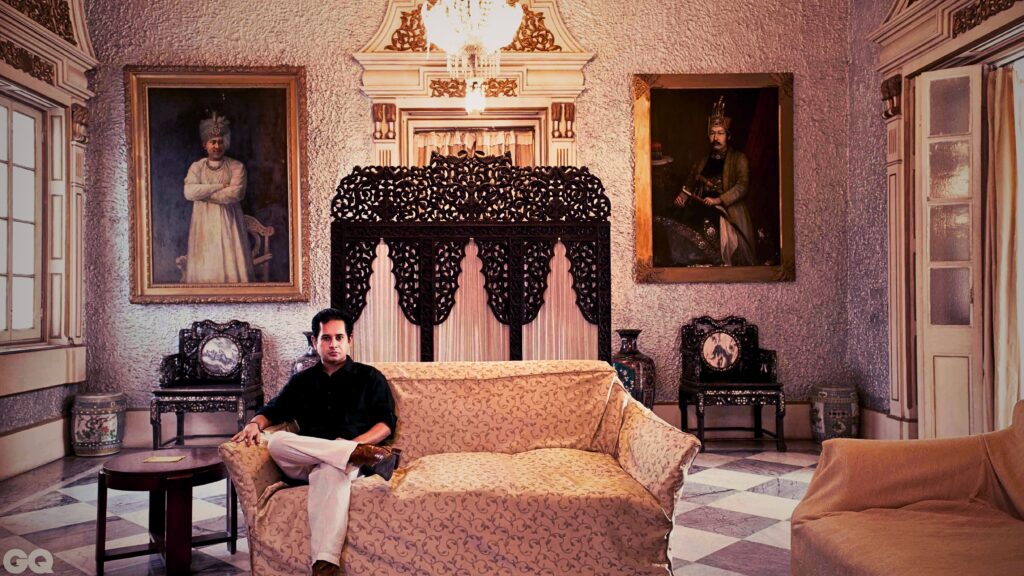
Being a royal descendant, Pradyot Kishore Debbarma inherited ancestral wealth, including properties and estates. While exact figures are not publicly available, his net worth is derived mainly from these assets, including royal palaces and land holdings. Unlike other political figures, Pradyot’s focus has been more on social reform rather than personal financial gains. He uses his resources to support community development and cultural preservation efforts.
Pradyot is also a former editor of the North East Today magazine, which adds to his reputation as a thought leader in Northeast India. However, his lifestyle doesn’t reflect an extravagant royal; rather, it is directed towards a cause—uplifting the marginalized communities of Tripura.
Vision for the Future
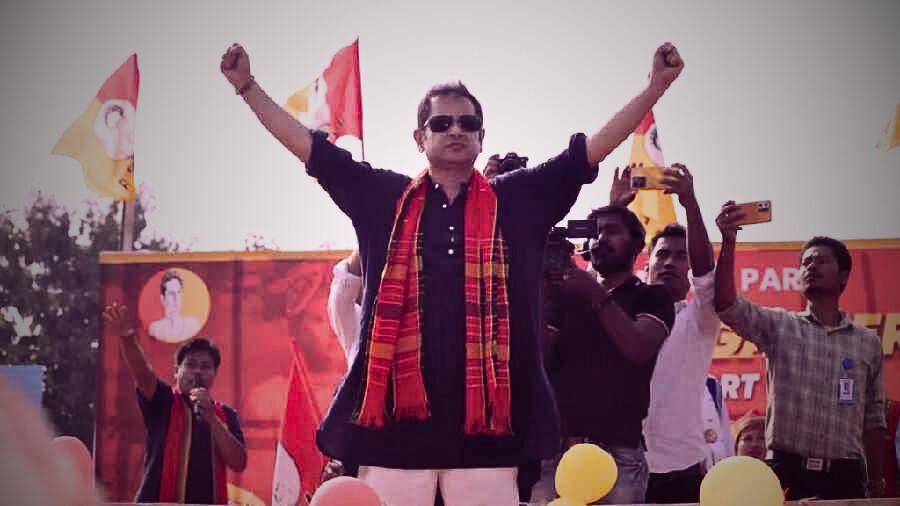
Pradyot Kishore Debbarma envisions a future where the indigenous people of Tripura have autonomy and their rights are respected. His call for Greater Tipraland is not just a political movement but a vision for safeguarding the culture, language, and identity of the Tiprasa people.
He has repeatedly emphasized dialogue, non-violence, and peaceful means to achieve political goals. Through his dedication, Pradyot has gained the support of the youth and the elders alike, making him one of the most significant political figures in Tripura today.
Conclusion
Maharaj Pradyot Kishore Debbarma is not just a royal figure; he is a leader with a deep sense of responsibility towards his people. His dedication to ensuring the welfare and rights of the indigenous communities in Tripura has brought him admiration and respect. Whether through political reform, social initiatives, or cultural preservation, Pradyot continues to be a key figure in shaping the future of Tripura and ensuring that the voices of its indigenous communities are heard.
His journey from royalty to becoming a people’s leader exemplifies his commitment to making a difference, and his legacy continues to inspire many in the region and beyond.
